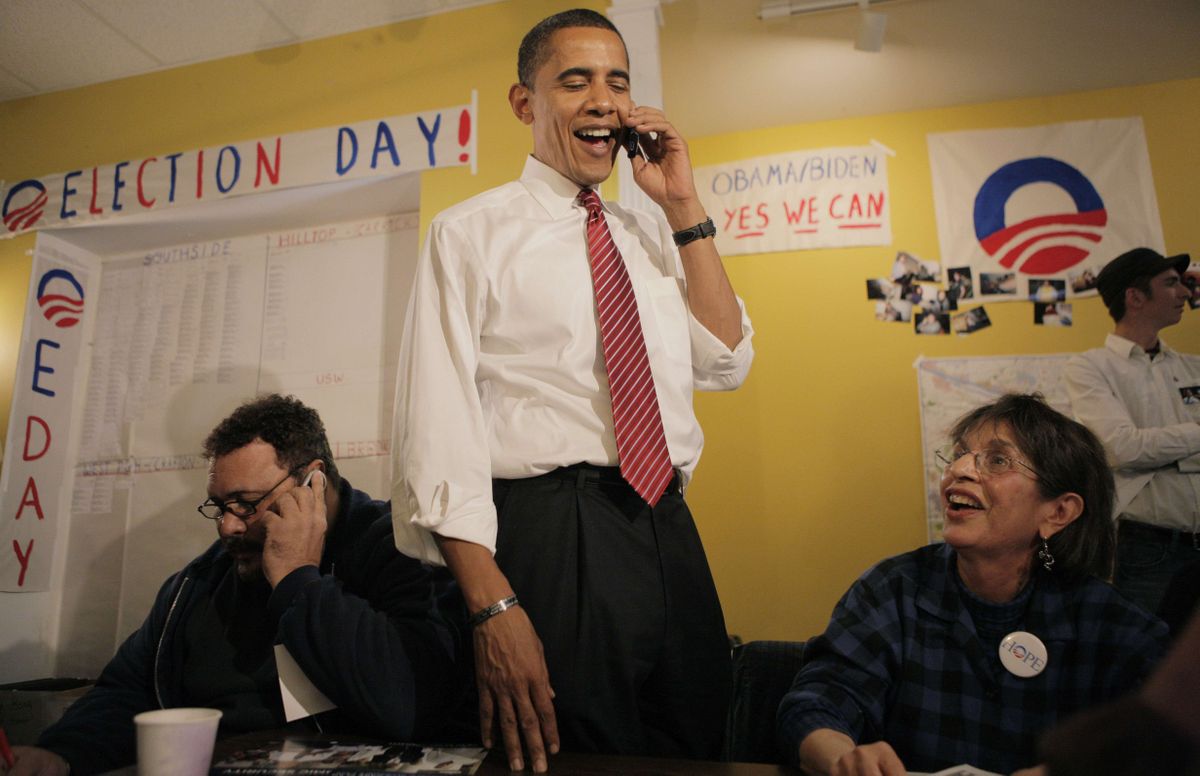Candidates’ contrasts showing
Campaign pitches markedly different

PITTSBURGH – The presidential candidates pursued votes in the same Midwestern states Monday but entered their final week of persuasion with messages that could scarcely be more different in tone and substance.
Sen. Barack Obama began offering here and in Canton, Ohio, a “closing argument” to voters that sounded much like the opening argument he made when he began his campaign nearly two years ago. It was an expansive, lofty call that emphasized economic revival, downplayed partisan politics and conjured up an image of election results that could “change the world.”
Sen. John McCain, campaigning in Ohio, made clear he would appeal to pocketbook concerns and depend on a tried-and-tested tactic of portraying his Democratic rival as a tax-and-spend liberal. He touted his experience and urged voters to look past Obama’s speechmaking skills.
“I know it’s pleasant to listen to Sen. Obama’s rhetoric, but look at the record,” McCain said. “This is the fundamental difference between Sen. Obama and me. We both disagree with President Bush on economic policy. The difference is that he thinks taxes have been too low, and I think that spending has been too high.”
Later, appearing in Pottsville, Pa., McCain said Obama “is running to be redistributionist in chief. I’m running to be commander in chief. Sen. Obama is running to spread the wealth. I’m running to create more wealth. Sen. Obama is running to punish the successful. I’m running to make everyone successful.”
McCain’s remarks showed the steep climb he faces in an election that has turned almost singularly on the nation’s faltering economy. Americans overwhelmingly blame Bush and his administration for the crisis, and McCain has struggled to separate himself from his fellow Republican. Obama made clear he was not about to help McCain make the case.
“After 21 months and three debates, Sen. McCain still has not been able to tell the American people a single major thing he’d do differently from George Bush when it comes to the economy,” Obama told a capacity crowd at the Canton Memorial Civic Center. “Not one thing.”
The contrasting statements were essentially a summation of the messages that will dominate the end of the campaign, a battle that will be fought almost exclusively in states that powered Bush’s re-election in 2004. McCain must win almost all of them to claim the White House.
His campaign has identified Pennsylvania as the largest Democratic state it hopes to flip. But polls show the front-running Obama with a substantial lead there, and he is taking the fight to McCain – hitting Ohio, Virginia, Florida and North Carolina, all states Republicans have counted on.
In his comments on the economy, McCain pledged to protect investments, rescue the housing market and lower taxes to spur job creation.
“I have been through tough times like this before, and the American people can trust me – based on my record and results – to take strong action to end this crisis, restore jobs and bring security to Americans,” McCain said.
Obama’s speech had been planned for days, senior campaign adviser David Axelrod said.
Told that the themes sounded similar to Obama’s campaign announcement 21 months ago, Axelrod replied: “I think consistency is a good thing.”